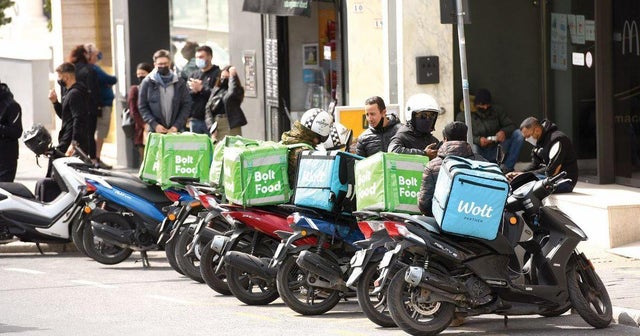Gig workers, self-employed individuals who are assigned work through digital platforms such as Uber, Bolt and Wolt, made up almost 5% of Malta’s workforce by the end of 2022, newly released data by the National Statistics Office (NSO) shows.
The workers, who have limited access to workplace rights such as caps on working hours, mandatory breaks or job benefits, were predominantly contracted through taxi and food delivery services and accommodation rentals.
The NSO data shows that most workers contracted through such platforms were men, almost doubling the number of women and making up 64.2% of all gig workers. Additionally, the workers were aged mainly between 35 and 54.
The next-most prevalent age bracket was that for 15-34-year-olds, making up some 41% of all gig workers surveyed. Such work was predictably unpopular amongst older workers, with 55-64-year-olds accounting for just 12% of gig workers.
The statistics office’s data shows that taxi services, such as Uber, Bolt, and eCabs, employed the largest number of platform workers locally, accounting for 40%. Persons working through rental accommodation services such as Airbnb or food delivery services such as Uber Eats, Bolt Food, or Wolt each accounted for another 32% of workers.
Some 4,000 persons, or 22% of workers, sold goods online through services such as Etsy and another 2,500 or 15%, were listed as content creators who send texts or create videos for profit.
Reflecting the precarious nature of gig work, the data showed that a majority, some 58% of all gig workers, reported that they had not worked on such platforms the previous month.
The Shift has reported how the prevalence of such “platform work” in recent years has led to a slew of labour rights issues related to the platforms’ relatively unregulated nature.
In response to upcoming EU legislation, which would reclassify such workers into de fact full-time employees in a bid for employee rights, platforms have threatened to hike prices and lay off workers.












